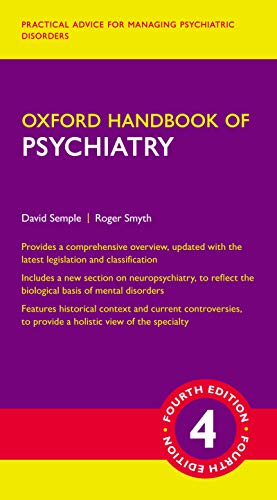Περιγραφή
Psychoactive substance use ranks among the five top risk factors contributing to the global burden of disease. Substance use disorders can cause, mimic, underlie, or complicate a large number of medical and psychiatric conditions. In recent years, there has been a rapid increase in non-substance forms of addiction such as gambling, internet gaming, and various other behavioural addictions. The ability to diagnose addictive disorders and initiate appropriate management is a responsibility for all health professionals.
Addiction Medicine, now in its third edition and published in the renowned Oxford Medical Handbook series, is the result of many years’ preparation by a group of colleagues who are clinicians, teachers, and researchers in the addictive disorders field. The handbook is a contemporary, broadly-based, and clinically grounded text that summarises the scientific basis and practice of addiction medicine. It provides practical guidance on clinical management but with a sound background of pharmacology, neurobiology, psychology, and epidemiology and public health. It seeks to provide approaches to minimising harm from psychoactive substances and addictive behaviours, both at an individual and a societal level.
The new edition has been expanded greatly. In addition to the behavioural addictions, it covers a broader range of psychoactive substances. There are new chapters on Screening and brief interventions and on Digital health approaches. It also continues to be international in scope, with the editors and contributors drawn from over 30 countries worldwide.
The handbook is intended as a concise and practical guide for students, trainees, and qualified practitioners of medicine, nursing, psychology, and other health professionals. In particular, it is designed for students and post-graduate trainees and fellows in addiction medicine, internal medicine, psychiatry, emergency medicine, pain management, gastroenterology, and general medical (family physician) practice. It is also useful and relevant to nurses, particularly those working as specialists in addictive disorders, clinical psychologists, psychologists and counsellors, and social workers and for staff in multidisciplinary agencies which provide help, support, and treatment for people with addictive disorders.
This unparalleled guide contains everything you need to know to assist in the assessment, diagnosis, and clinical management of patients with substance use and related addictive disorders
- Provides a practical, comprehensive guide to the management of people with addictive disorders
- Written by experienced clinicians and global leaders in addiction medicine research, and guided by professional curricula
- Provides a foundation in relevant epidemiology and pharmacology, and outlines the broad approaches to minimizing harm from substance use and addictive disorders
- Describes the needs and relevant treatments for particular age and socio-economic groups together with the more complex clinical situations such as pain and dependence, and psychiatric comorbidity
- Presents practical tools for screening, assessment, diagnosis and management
New to this Edition:
- In addition to the behavioural addictions, this edition covers a broader range of psychoactive substances
- There are new chapters on Screening and brief interventions, and on Digital health approaches
- Even greater emphasis on the international aspect of this field with contributors from over 30 countries worldwide











